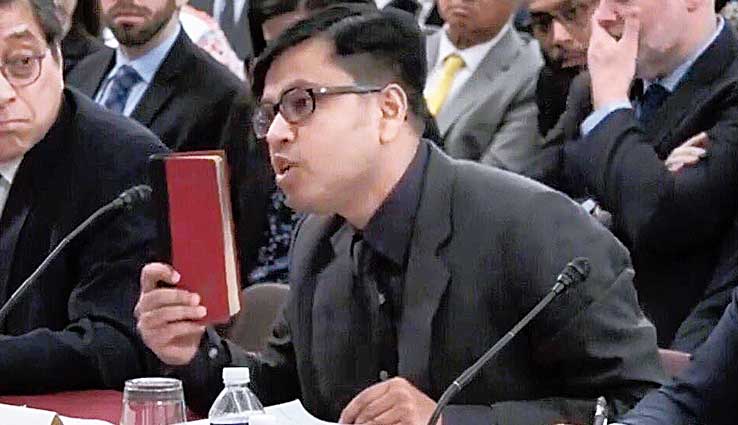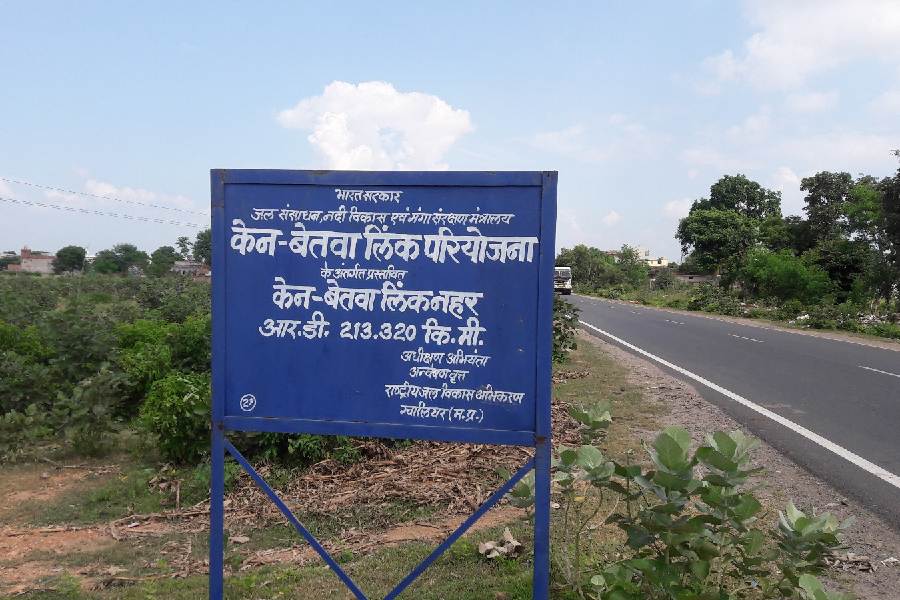A human rights lawyer from Assam, Aman Wadud, has said the threat of a nationwide National Register of Citizens, after the “discriminatory” CAA, has instilled fear in the minds of Muslims that they will be “targeted” over their citizenship status because of their religion.
Wadud was speaking at the US Commission on International Religious Freedom (USCIRF) hearing on Citizenship Laws and Religious Freedom in Washington DC on Wednesday. The hearing was about how citizenship laws are leveraged to “deny religious minorities” the legal protection of citizenship, making them vulnerable to “exploitation, discrimination and mass atrocities”. Wadud said of the 200 million Muslims in India, many are impoverished and spend a great deal of money to acquire their citizenship documents. He said the NRC and CAA were not in the interest of India and the procedures followed were “arbitrary” and “unfair”. “It attacks, particularly, the most vulnerable of citizens: women, religious minorities and children,” he said.
“Continuous news of death in detention centres in Assam and separation of children from parents because of detention has increased the fear among Muslims, particularly women. This is exactly why Muslim women are leading peaceful protests on the streets for more than two months, beating all odds. The protest is against the sinister design of CAA-NPR-NRC. This protest is to protect the Constitution of India, whose values are under serious threat,” Wadud said.
He said despite the state and public protests, the government has neither backed down from the proposed implementation of the NPR and CAA, and eventually the NRC, nor has it opened dialogue with the protesters.
“The Indian Constitution, which is an unparalleled document in the history of modern nations, guarantees the right to live with dignity. The NRC exercise, if implemented, will deny this very right,” he said.
“Using CAA, the NRC can render stateless a large number of Muslims, even if they were born in India and have lived in the country for decades, as have their ancestors. That is an important reason protests have not ceased,” said Ashutosh Varshney, Sol Goldman professor of international studies and the social sciences and director of the Center for Contemporary Asia, Brown University.
“India is about 80 per cent Hindu and a little less than 15 per cent Muslim, which adds up to about 180-190 million Muslims. The threat is serious and the implications quite horrendous,” Varshney said.
Tony Perkins, chair, USCIRF at the hearing on Citizenship Laws and Religious Freedom, said, “The right to a nationality is a fundamental human right and serves as a bedrock…the denial of citizenship can be a key predictor for mass atrocities.”
The USCIRF is an independent, bipartisan federal government entity established by the US Congress to monitor, analyse and report on threats to religious freedom abroad.











